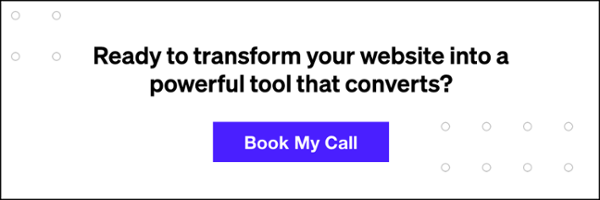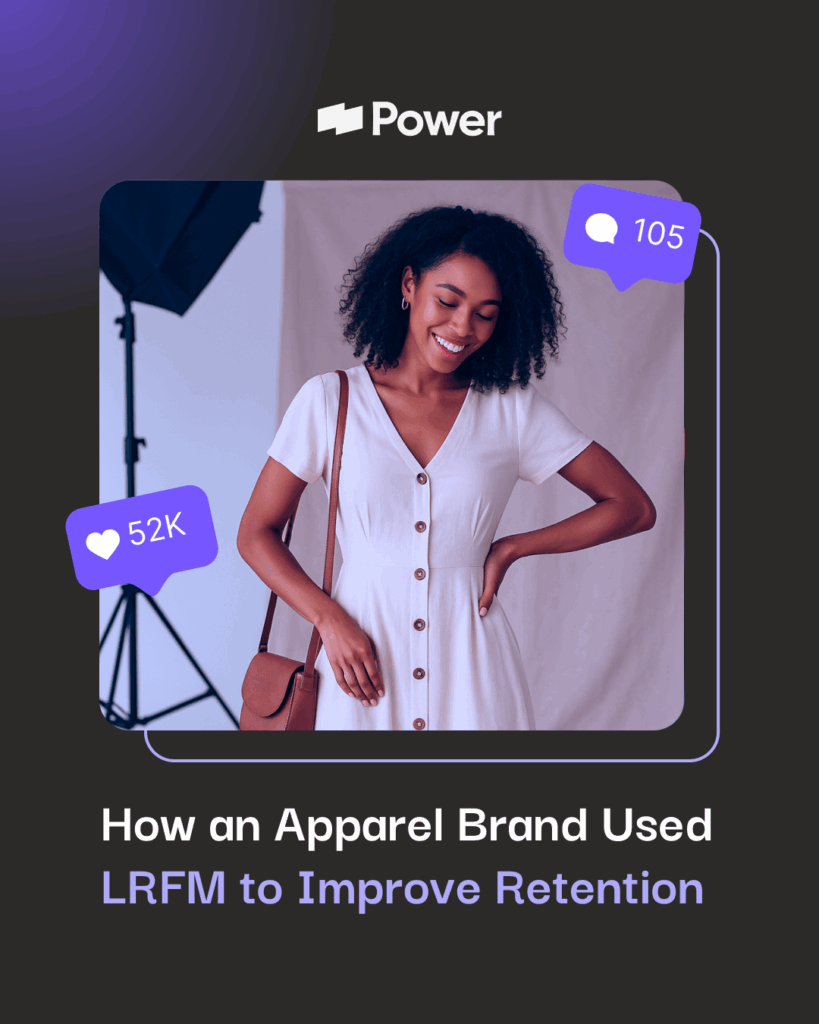Which E-Commerce Platform Is Best for My Online Business?

When it comes to building a successful online business, the current digital marketing best practices revolve around search engine optimization and crafting an awesome user experience. And while most marketers know the importance of fine-tuning those techniques, there is another key player in the online business sphere that’s proving its value and worth: e-commerce platforms.
The reason e-commerce platforms are becoming an increasingly important part of any growing business is because, in our digital day and age, they are the engine that drives your prospects down the customer journey. If a business selects an e-commerce platform that is not right for their product, brand, or customers, it results in abandoned shopping carts—and that equals a loss in revenue.
Related: Why Is E-Commerce So Important?
Before we jump too far ahead, let’s take a moment to go over what an e-commerce platform is. Typically, this is a program or software application that allows your business to sell products directly from the website. This is a great way to eliminate third-party sellers from the customer journey.
If, for example, you’ve been selling painted frames on Etsy for the past five years, an e-commerce platform would allow you to now sell your products from the website instead. This would make the sales process much easier for you and your customers by eliminating the middle man (which, in this case, would be Etsy).
Selecting the right platform from a competitive marketplace
In May of 2016, Google reported that mobile product searches were overthrowing desktop product searches. In our increasingly mobile-first world, consumers were searching for products directly from their phones and making final purchase decisions instantly with a tap of a finger.
This commerce trend pushed marketers to focus on making the mobile marketplace as convenient as possible for consumers who are looking to buy products and services. This trend also created a ripple effect and e-commerce companies were then forced to innovate and deliver powerful features on their platforms to keep up with new shopping demands.
Related: 7 Core Marketing RolesTop E-Commerce Brands Have Dialed-In
The good news? You get to pick a top-quality e-commerce platform that best suits your needs from a highly competitive and dynamic marketplace. The bad news? This only makes it all the more difficult to know which one to pick.
As you’re looking for the right platform, keep in mind that if there are any barriers in an e-commerce platform that hinder the process of converting your prospect into a customer, the consequences can be detrimental to your company. As soon as something becomes a hassle for a prospect while shopping for a product, they’ll drop your website and move onto other things. This is, essentially, leaving money on the table.
To help you avoid losing potential customers and sales, we’ve identified the top e-commerce platforms to consider when choosing the best one for your online business goals. The following overview will help you evaluate which e-commerce platform best fits your online business depending on your product, budget, and brand.
Shopify
Shopify hosts over 325,000 active online shops and is focused on social commerce and mobile shopping. The platform never stops innovating to meet the growing demands of consumers searching for a deal on the product they want.
Pros
- Easy to use
- Over 100 templates to choose from
- 1500 + plugins and extensions to improve functionality of store
- Built-in mobile-friendly shopping cart
- Integrates with the business’s Facebook page and allows you to directly sell from it
- Superior customer service support
Cons
- Limited ability to customize checkout page
- Includes transaction fee
Price: The Lite Plan starts at $9 per month and basic plans start at $29 per month—there is a discount if you use Shopify’s credit card processer.
Used By
- Budweiser
- The Economist
- Red Bull
- Tesla Motors
- Water Aid
Special Features: Shopify beats out the competition with its extensive and rich selection of different plugins that extend the default setup and introduces new functionality to your website.
WordPress And WooCommerce
Okay, so this one isn’t *technically* an e-commerce platform, but it is one option many businesses consider. WordPress is a widely popular website platform and there are a ton of e-commerce platform plugins you can use for your site.
Related: 20 Best Incentives For Your E-Commerce Site
For the purposes of this article, we’re going to use the WooCommerce plugin as an example (especially considering E-commerce Platforms recently named this the best free e-commerce platform for WordPress)
Pros
- If you have a WordPress site, this is an easy integration
- Totally free
- Enables you to sell physical, digital, and even affiliate goods from online marketplaces
- Shipping is highly configurable
- Lots of payment options to choose from
- Plenty of extensions to consider like Google Analytics and Delivery Notes
Cons
- WooCommerce is only a possibility if your website is built on WordPress
- Some built in functionalities do not work well
Price: Free!
Used By
- Men’sHealthBox
- Duracell Lighting
- Ripley’s Believe it Or Not
- DesignBoom
Special Features: Pair this plugin with the Storefront WordPress theme for complete and total integration.
Big Commerce
Big Commerce currently hosts over 55,000 online stores and is one of the most coveted e-commerce software providers. It is often considered a helpful and useful option for those with little technical knowledge that do not want to mess with coding. Big Commerce is also available as a WordPress plugin
Pros
- No transaction fee
- Can integrate store with Facebook, E-bay, Google shopping, and more
- Helpful setup wizard, training videos, and extensive guides
- Free and paid themes are just as good as paid ones
- Themes are customizable to fit with image of your brand
- Extensive built-in features including newsletters, coupons, tax, analytics, and shipping
Cons
- Limited amount of free themes (only seven)
- Some built in functionalities do not work well
Price: Plans start at $29.95 per month. There is a 10% bulk discount available if purchase year of service.
Used By
- Martha Stewart
- Toyota
- Pandora
- Yeti
Special Features: What makes Big Commerce stand out compared to the competition is that it does not have any transaction fees. Also, you are not forced to update to a higher plan if you reach a certain amount of sales using their platform.
Big Cartel
Big Cartel’s target market consists of small-scale, home-based businesses run by individuals making a living selling their art creations. It is an extremely easy-to-use hosted system and is often regarded as the best site for creative individuals entering the e-commerce arena.
Pros
- Easy to use and manage
- Integrates with Facebook
- Super affordable (especially the free versions)
- Beautifully crafted themes
- Code editor that allows you to customize theme
- Extensive supply of detailed guides, video tutorials, and FAQs
Cons
- Limited functionality because of its simplicity
- Lacks responsive themes
- Not typical for retailers
Price: Some plans are free, but the more superior plans start at $29 per month.
Used By
- Apparel K
- Unfinished
- 12 Stack
Special Features: Big Cartel caters to creative individuals and is known for hosting the best independent artists on the e-commerce market.
Volusion
Volusion is a complete e-commerce website builder that offers web design, marketing, and other business tools. One of the longest running e-commerce platforms—established in 1999—it is an all-in-one company that now serves more than 40,000 online stores.
Pros
- Straightforward and easy-to-use platform
- Comprehensive support material and great customer service
- No transaction fees
- Integrates with Facebook store
- Responsive mobile themes
- Unlimited storage in basic plan
- Can customize themes and design with HTML/CSS coding
Cons
- Not as aesthetically pleasing as other software
- Coding knowledge is required
Price: There is a free 14-day trial plan, a mini plan that starts at $15 per month, and the more superior plans reach up to $135 per month.
Used By
- Toni&Guy Hairdressing
- This American life
- Jane Seymour Botanicals
Special Features: Volusion is one of the oldest e-commerce platforms on the market and has made four times as many online sales compared to any other provider—a whopping $21 billion USD! Volusion stands out because it is a reputable, experienced platform that has generated sales for thousands of online businesses.
Magneto
Magneto is often considered the market leader among e-commerce platforms, with about one-fourth of the market share today. Its reliability and scalability make it one of the best e-commerce platforms for enterprise level stores.
Pros
- Simple to use and manage
- Basic plan is free
- Great for large volume of products
- An open source platform that is fully customizable to fit your brands’ image
- Over 9,000 plugins to scale and extend your business
- Free extensions that allow you to sell straight from social media platforms
- Comprehensive support for store management, growth, and demos
- Access to an online community of storeowners and plugin developers that you can use for support
Cons
- Paid plans are a minimum of $20,000 per month
- Open-source platform makes it complex
- Not good for beginners
Price: There is a free community plan but custom plans starts at $20,000 per month as a minimum.
Used By
- Burger King
- Huawei
- Pepe Jeans
- Liverpool F.C.
Special Features: Magneto is the most powerful e-commerce platform out there and is for bigger, more established retailers who do most of their business online.
Wrapping Up
While the above list features some of the best e-commerce platforms in the business, there is no one-size-fits-all magical solution. When you’re trying to decide which platform is the best for you, it is important to consider how the tool will fit with your brands’ image, the products you’re selling, and the budget you’re working with.
Related: 4 Key Email Sequences Your E-Commerce Company Needs
Also, as you search for an e-commerce solution, be sure to check whether the platform will allow you to capitalize on modern commerce trends. In our fast-paced, digital era, technology will continue to change and evolve so you need to make sure the e-commerce platform you choose aligns with the expected and foreseeable needs and goals of your business.
Once you’re able to evaluate which platform fits your needs best, you’ll be able to make the customer journey a much smoother road to success.
Our Editorial Standards
Reviewed for Accuracy
Every piece is fact-checked for precision.
Up-to-Date Research
We reflect the latest trends and insights.
Credible References
Backed by trusted industry sources.
Actionable & Insight-Driven
Strategic takeaways for real results.







